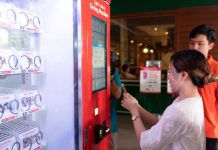
July 23 (UPI) — Deputy Secretary of State Stephen Biegun testified Wednesday that China has been working to steal U.S. technologies to treat COVID-19 and arresting those who speak up about the threat of the virus.
Responding to questions by Sen. Cory Gardner, R-Colo., Biegun cited Justice Department indictments unsealed Tuesday, alleging Chinese hackers sought to steal U.S. intellectual property including COVID-19 research.
“We have firm evidence to suggest that Chinese hackers working in close association with Chinese national security institutions have in fact been trying to steal information related to the development of technologies to treat coronavirus,” he said.
Biegun also referred to an extensive history of the Chinese government silencing dissenting voices when asked if they were “disappearing” health officials and others who warned of the dangers of the coronavirus outbreak.
“China has been arresting dissenting voices for my entire career but in recent months we have seen, in particular, this focus has turned against those who spoke up — particularly early on — about the COVID virus in Wuhan, absolutely,” he said.
Biegun added he believes the Uyghur Muslim population in China is being “severely mistreated” but stopped short of declaring the treatment torture, despite a push from Gardner.
“Torture is a legal definition and I don’t simply have the evidence available to me to make that statement as a legal matter,” he said.
Biegun was sworn in to his deputy post in December. He was special representative for North Korea for 16 months in 2018 and 2019.
U.S.-China relations have declined since President Donald Trump took office in 2017. A lengthy trade conflict, accusations of theft and implications over the origins of the coronavirus pandemic have soured political ties.
Earlier Wednesday, Beijing condemned the Trump administration for closing a Chinese consulate in Houston — a move the State Department said was intended to “protect American intellectual property and Americans’ private information.”
The Chinese government promised “legitimate and necessary” countermeasures if the consulate isn’t allowed to reopen.
Sen. Bob Menendez, D-N.J., questioned the administration’s approach on China saying it “labors under the mistaken belief that just being confrontational is the same thing as being competitive” while referencing the decision to close the consulate.
“I’m all for safeguarding our national security, I understand the importance of being tough with China, but being tough is the means, not the ends,” he said. “So while there may be a reason for taking this action … I want to understand better not just the tactical considerations, but how this measure advances our strategy.”





